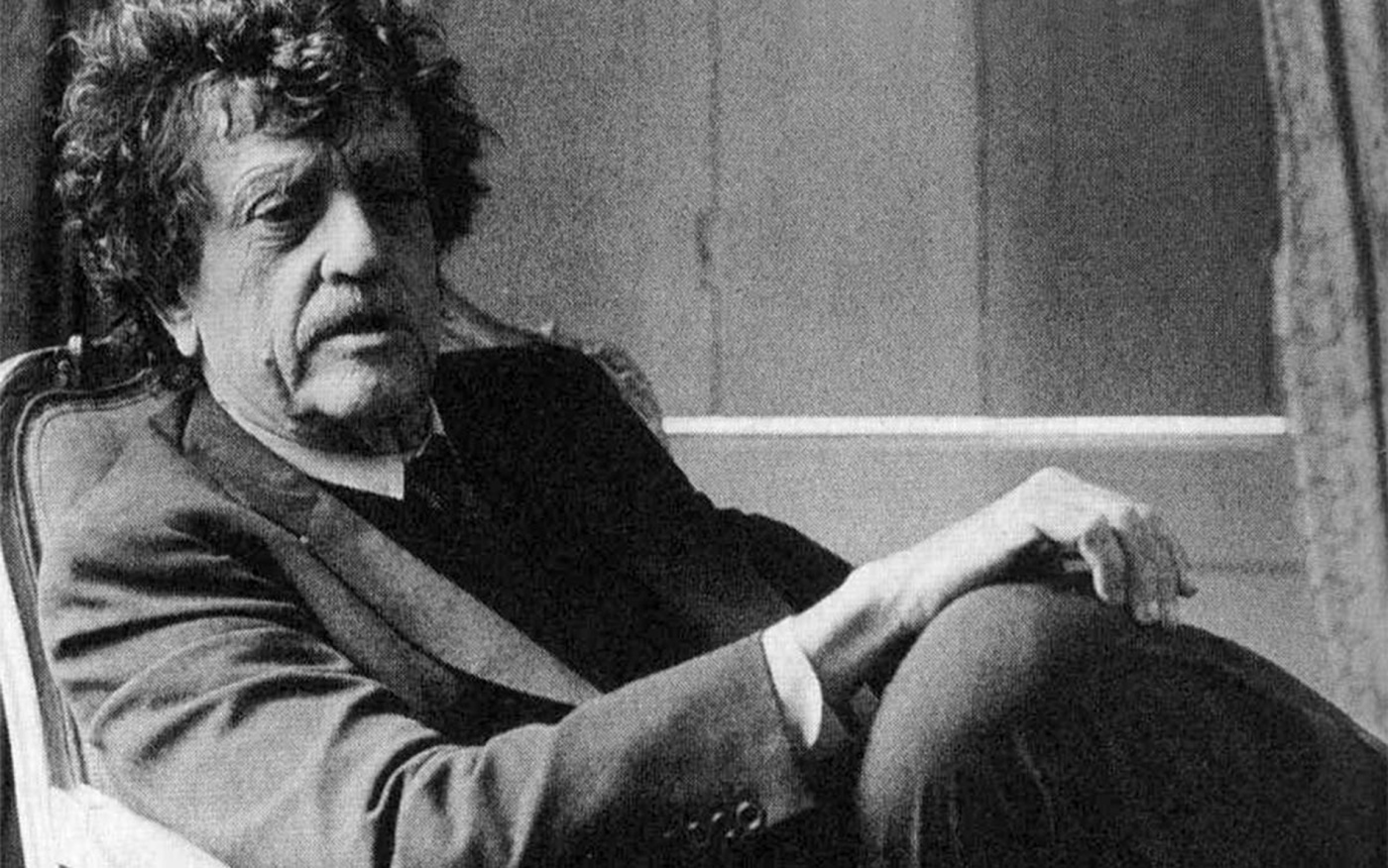From the Archives: Vonnegut Hits Pembroke

Originally appeared in Brown Alumni Magazine Vol 91 no. 4, December 1990.
Kurt Vonnegut appeared most Mark Twainian—a mop of curly hair and thick moustache, and crusty, irreverent, incisive, suitable-for-quoting comments on the current state of affairs—when he spoke to a crowd of enthusiastic undergraduates and others fortunate enough to get tickets for his sold-out performance at Alumnae Hall on November 5.
In a free-form “speechlecturesermon,” the man who proclaimed that his “brain was marinated in books” vented his spleen. “If I walked down the aisles of this auditorium and spit in the face of each and every one of you, that would not be as great an insult as having Dan Quayle as the vice president of this country,” he said. “And please don’t laugh. Be insulted by Dan Quayle.”
Besides politics, Vonnegut, best known for his novel Slaughterhouse Five, addressed issues of racism, censorship, and freedom in his hour-long monologue. He noted that while his popular novel has been censored in this country, it is widely read in the Soviet Union. “Censorship has been around for a long time,” he said. “It’s a social disease, like slavery. But I think we’ve come a long way. We used to burn people; now we just burn books.”
On the subject of freedom, he said: “Boston and Philadelphia are looked upon as the cradles of liberty. They’re not the cradles of liberty. They are the motels of liberty. Liberty was conceived in 1776. The gestation period for liberty has been 200 years.”
Vonnegut said he and his generation were shaped by books while his audience was shaped by television. “Jennings, Rather, and Brokaw,” he said. “Television anchormen and politicians will trivialize everything but themselves. But,” he continued, “I would have rather written Cheers than anything I’ve written.”
He recalled having paid $85 to learn transcendental meditation. Armed with his secret mantra, which he freely offered to the audience, having suspected all along it was Sanskrit for $85, he explained that the TM experience was like “scuba-diving in lukewarm bouillon.” Sometime later it occurred to him that he had meditated before. “It was called reading. Reading is Western-style meditation.”
Vonnegut’s lecture was entitled, “How to Get a Job Like Mine” and he lampooned the writer, the craft, and “literati.”
“There are more full-time admirals than there are full-time writers,” he said. “And my foot doctor thinks I wrote Kon-Tiki.” To aspiring short-story writers, he offered this advice: “Throw away the first three pages. Your story is one character short. Introduce an Iago-like figure; someone who is vicious, who lies, and who forges signatures.”
We live in a time when we can no longer distinguish between the good news and the bad news, Vonnegut concluded. We are confused by television into thinking that our lives are supposed to be a story. People get divorced, he said, because they feel “we’re a lousy story. We can’t put on the show.”
“You are not supposed to be a story,” he said. “Only stories can be stories. And that’s the end of my lecture.”




